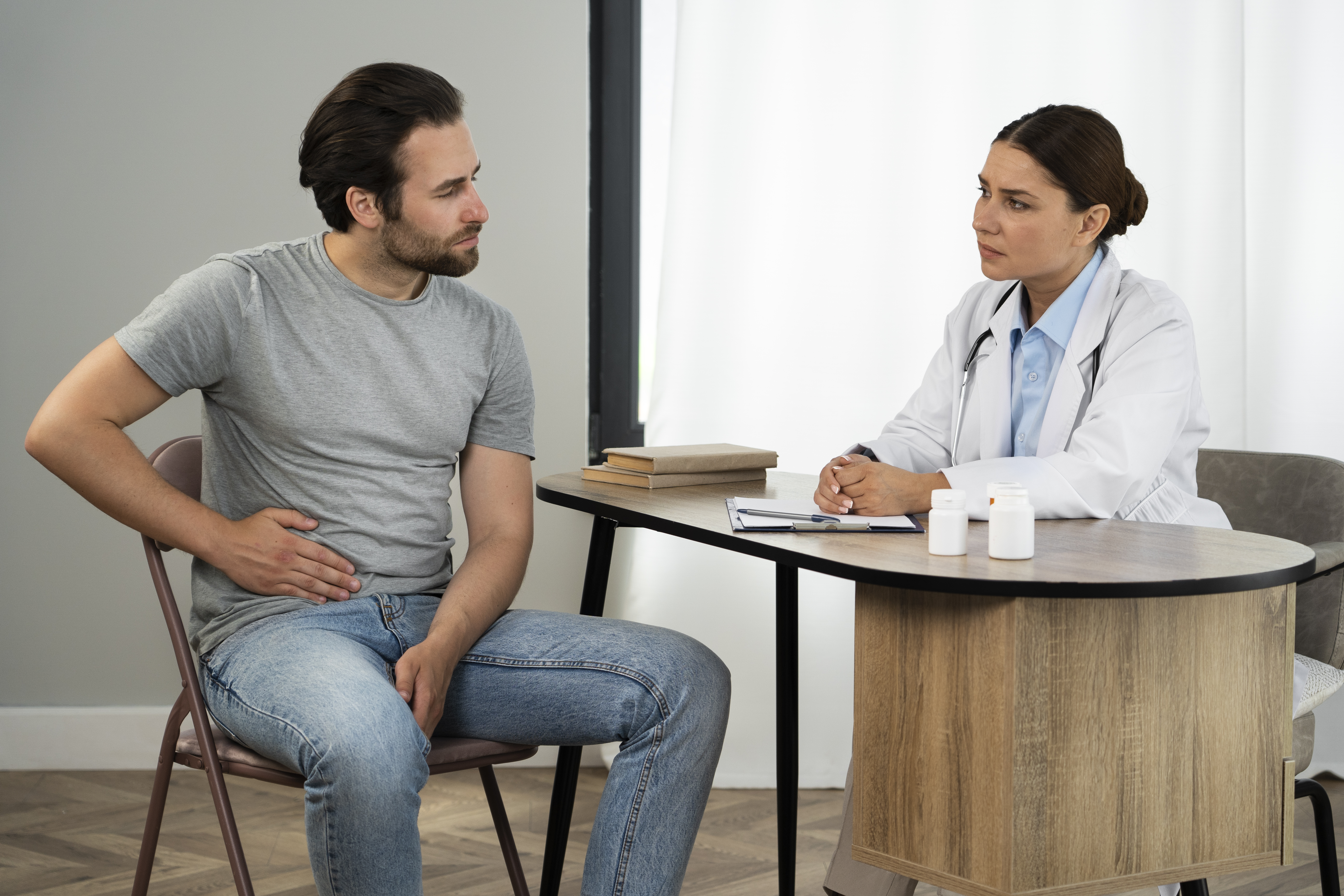PILES (Hemorrhoids) Treatment
PILES (Hemorrhoids) Treatment
Piles (Hemorrhoids) are swollen veins in the rectum or anus that cause discomfort, itching, bleeding, or pain, especially during bowel movements. Treatment depends on the severity and may include lifestyle changes like increasing fiber intake, drinking plenty of water, and avoiding straining. Over-the-counter creams or suppositories can reduce inflammation and pain. In more serious cases, medical procedures such as rubber band ligation, sclerotherapy, or surgical removal (hemorrhoidectomy) may be recommended. Maintaining good bowel habits and hygiene is essential to prevent recurrence. Early consultation with a doctor ensures effective management and relief from symptoms with minimal complications.

Piles (Hemorrhoids) Treatment – Key Points
- Swollen veins in the anal or rectal area causing discomfort, itching, or bleeding.
- Pain while sitting, bleeding during bowel movements, itching, and swelling around the anus.
- Home Remedies : High-fiber diet, plenty of fluids, warm sitz baths, and avoiding straining.
- Medical Treatments : Topical creams, oral pain relievers, and non-surgical procedures like rubber band ligation or sclerotherapy.
- Surgical Options : Hemorrhoidectomy or stapled hemorrhoidopexy for severe or recurring cases.
- Prevention Tips : Eat fiber-rich foods, stay hydrated, avoid sitting too long, and exercise regularly.
- When to Consult a Doctor : If symptoms persist, worsen, or interfere with daily activities.
- Preventive care includes healthy eating, avoiding smoking/alcohol, and stress control.
- Recovery : Most mild cases resolve with home care; advanced treatments offer fast relief and long-term prevention.
Diagnosis & Treatment
Diagnosis Methods
- Endoscopy & Colonoscopy – To visualize the digestive tract internally.
- Ultrasound, CT Scan, MRI – For detailed imaging of abdominal organs.
- Blood Tests – To detect infections, liver function, and inflammation.
- Stool Tests – To identify infections, blood, or digestive issues.
- Biopsy – To confirm diseases like cancer, IBD, or celiac disease.
Treatment Options
- Medications – Antacids, antibiotics, anti-inflammatory or immunosuppressive drugs.
- Dietary Changes – Gluten-free, low-FODMAP, or high-fiber diets depending on condition.
- Lifestyle Modifications – Avoiding alcohol, quitting smoking, managing stress, exercising regularly.
.png)
